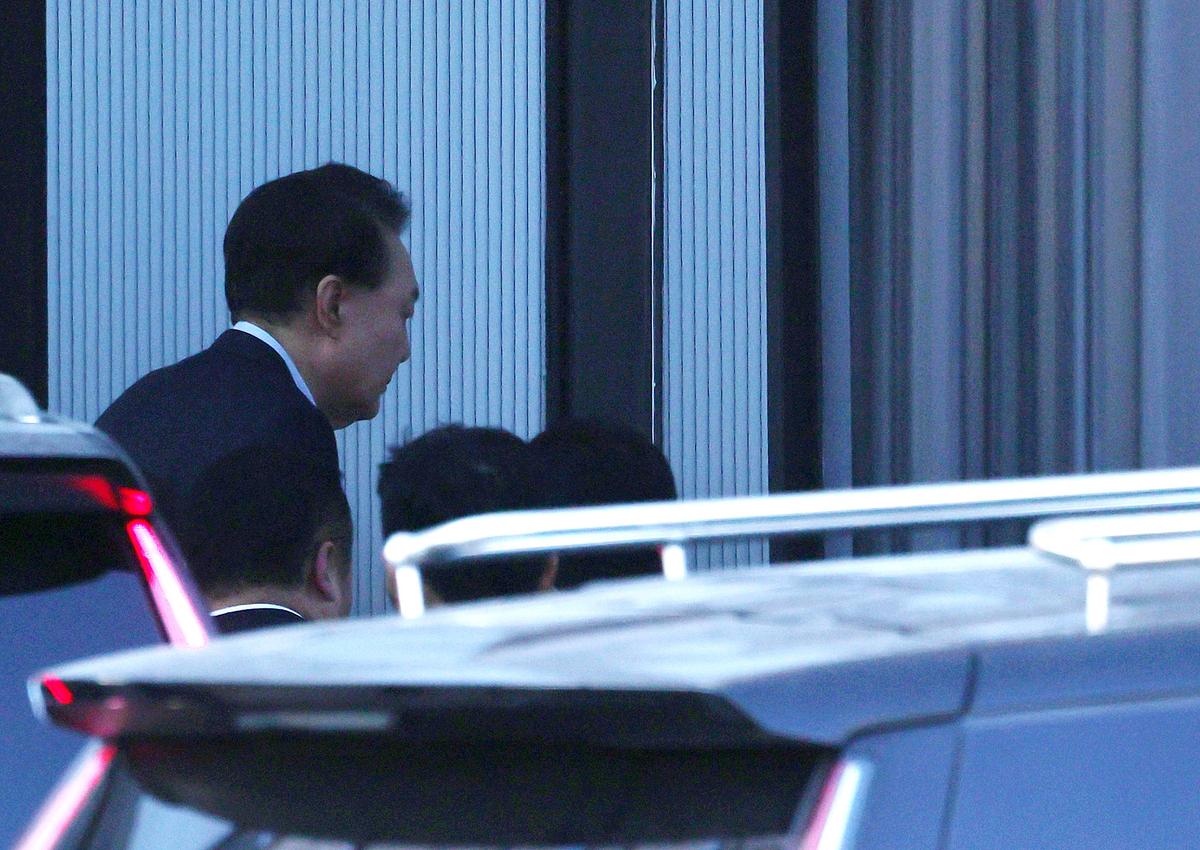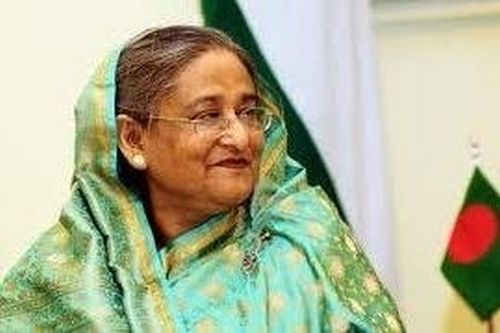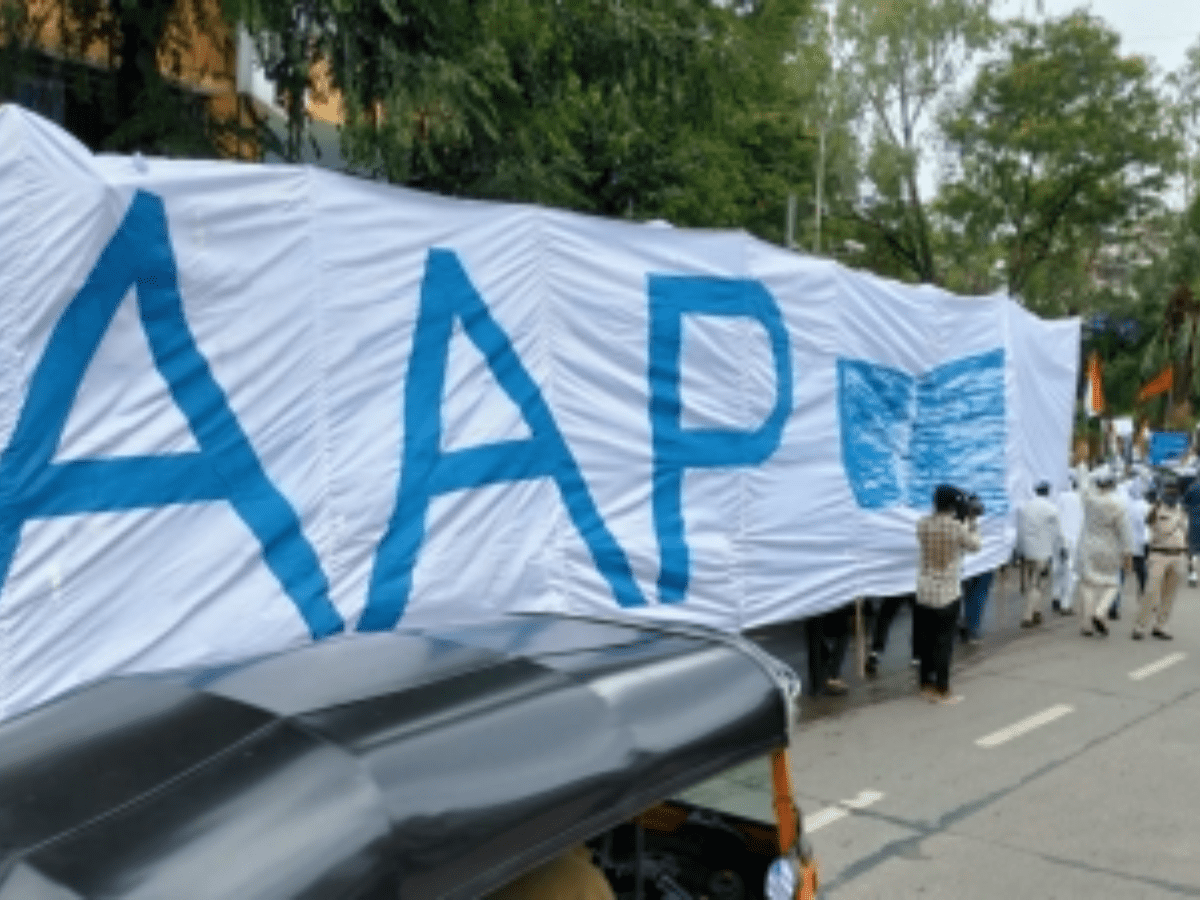Seoul: South Korea’s impeached President Yoon Suk Yeol was detained in a massive law enforcement operation at the presidential compound Wednesday, defiantly insisting the anti-corruption agency didn’t have the authority to investigate his actions but saying he complied to prevent violence.
In a video message recorded before he was escorted to the headquarters of the anti-corruption agency, Yoon lamented the “rule of law has completely collapsed in this country.”
Yoon, the country’s first sitting president to be apprehended, had been holed up in the Hannam-dong residence in the capital, Seoul, for weeks while vowing to “fight to the end” the efforts to oust him. He has justified his declaration of martial law Dec. 3 as a legitimate act of governance against an “anti-state” opposition employing its legislative majority to thwart his agenda.
The Corruption Investigation Office for High-Ranking Officials said Yoon was brought into custody about five hours after investigators arrived at the presidential compound and about three hours after they successfully entered the residence, in their second attempt to detain him over his imposition of martial law.
A series of black SUVs, some equipped with sirens, were seen leaving the presidential compound with police escorts. Yoon was later seen stepping out of a vehicle after arriving at the agency’s office in the nearby city of Gwacheon. Following the questioning, Yoon was expected to be sent to a detention centre in Uiwang, near Seoul.
Yoon could be held in custody for weeks.
The anti-corruption agency, which is leading a joint investigation with the police and the military over whether Yoon’s martial law declaration amounted to an attempted rebellion, has 48 hours to request a court order for a formal arrest on a charge of attempting a rebellion, and if it fails to do so, Yoon will be released. If Yoon is formally arrested, investigators can extend his detention to 20 days before transferring the case to public prosecutors for indictment.
Yoon’s presidential powers were suspended when parliament impeached him on Dec. 14. The impeachment case now rests with the Constitutional Court, which could formally remove Yoon from office or reject the case and reinstate him.
As they began the detention operation in the early morning, the anti-corruption investigators and police officers engaged in an hourslong standoff at the compound’s gate with presidential security forces but otherwise encountered no meaningful resistance.
Some police officers used ladders to climb over rows of buses placed by the presidential security service near the compound’s entrance, and then the investigators began moving up the hilly compound.
The investigators and police later arrived in front of a metal gate with a gold presidential mark that’s near Yoon’s residential building. Some officers were seen entering a security door on the side of the metal gate, joined by one of Yoon’s lawyers and his chief of staff. The presidential security service later removed a bus and other vehicles that had been parked tightly inside the gate as a barricade.
Despite a court warrant for Yoon’s detention, the presidential security service had insisted it’s obligated to protect the impeached president and fortified the compound with barbed wire and rows of buses blocking paths.
South Korea’s acting leader, Deputy Prime Minister Choi Sang-mok, issued a statement early Wednesday urging law enforcement and the presidential security service to ensure there are no “physical clashes.”
Park Chan-dae, floor leader of the liberal opposition Democratic Party, which drove the legislative campaign that led to Yoon’s impeachment on Dec. 14, said Yoon’s detention is the “first step toward restoring constitutional order, democracy, and realizing the rule of law.”
As investigators moved up the hillside compound, lawmakers from Yoon’s People Power Party held a rally in nearby streets, decrying the efforts to detain him as unlawful.







